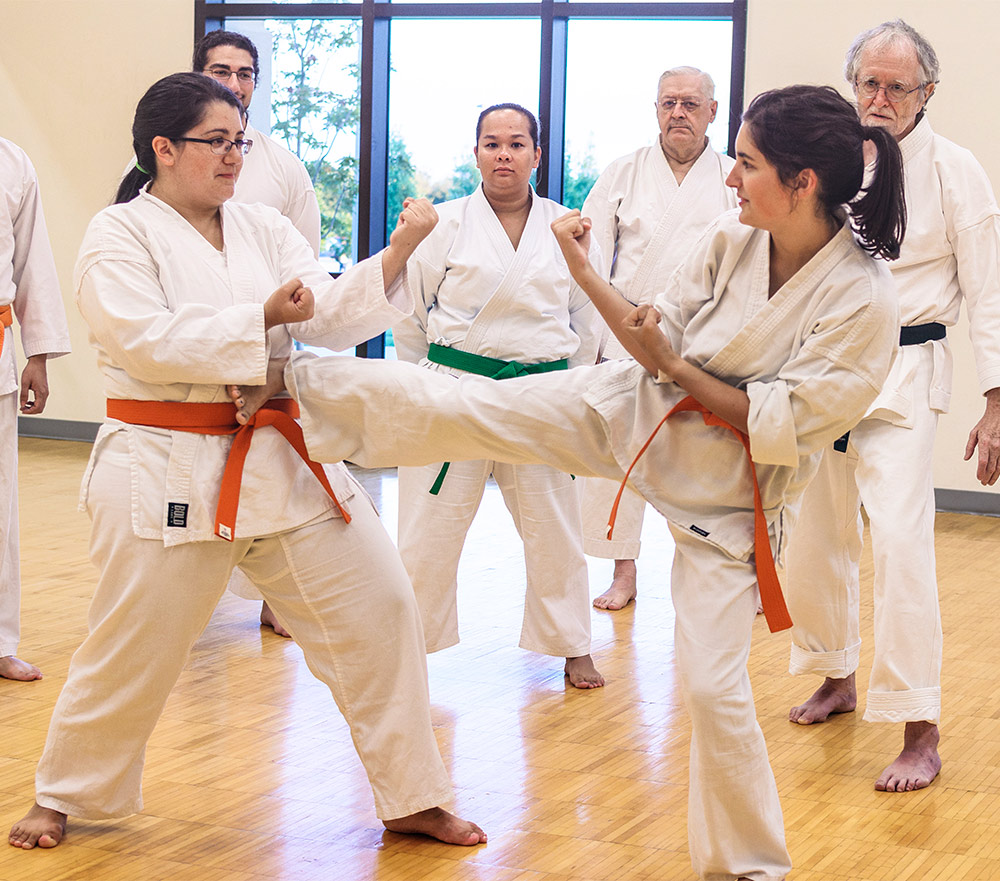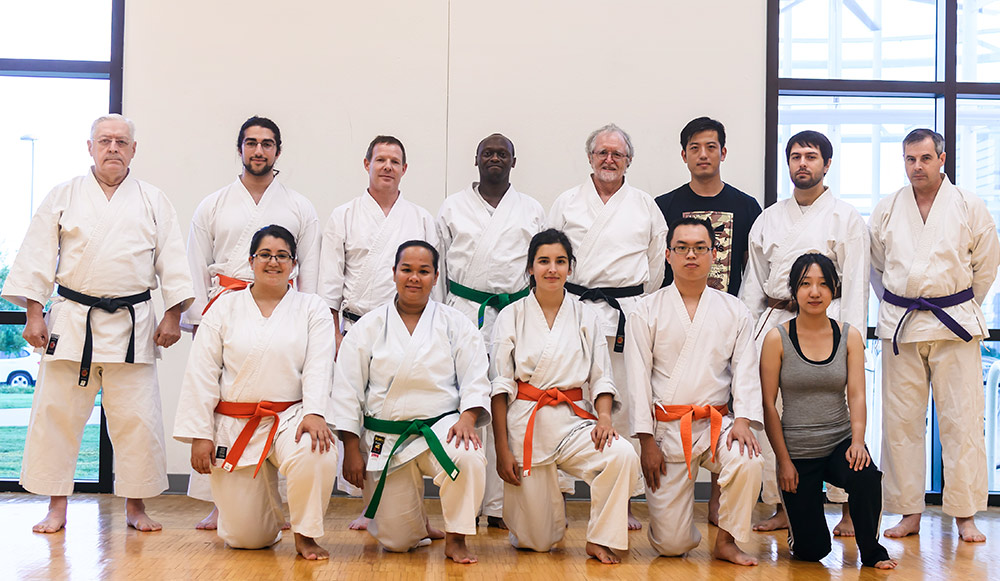
Shelia Meldrum (left), a doctoral student in neuroscience, spars with Bianca Marciano, a child learning and development sophomore. Meldrum said karate is more utilitarian and practical than tae kwon do, which she practiced as a teenager.
UT Dallas doctoral student Cherise Chin Fatt had always stayed active playing cricket, tennis and soccer. A few years ago, she decided to give martial arts a try.
But when she visited a practice session of the UT Dallas karate club, Chin Fatt realized she was the only woman there. It didn’t stop her from coming back.
“I had such a good experience I thought, ‘I’m going to give this a shot,’” said Chin Fatt, who is working on a PhD in neuroscience. “I wanted something that was different, and I heard the discipline of the sport would help me as a person.”
Today, the karate club has about 30 members, and nearly half are women. Members practice shotokan karate, a form of the discipline that is marked by maximum speed, power and form, rather than the more flowing movements of other martial arts.
Shotokan techniques involve deep stances that provide stability and enable powerful movements, as well as blocks, arm strikes and kicks. Famous practitioners include actors Jean-Claude Van Damme and Wesley Snipes.
Club members learn the basic techniques (kihon) and choreographed series of moves (kata), then apply them while sparring (kumite) with opponents.
“You move very quickly. The recoil from one move powers another,” said Dr. Frederick Turner, Founders Professor of Arts and Humanities and faculty advisor for the club. “You’re using minimal effort and getting maximum result.”
Shotokan karate also employs the familiar kiai, a short yell or shout when performing an attacking move, which intimidates an opponent and helps regulate one’s breathing and focus.
While practitioners earn their bumps and bruises, serious injuries are rare, Turner said.
“You become less afraid of things,” he said. “You realize you can get hurt and live through it.”
Practicing karate has been a confidence booster for Bianca Marciano, a child development and learning sophomore who admitted she sometimes likes to show off her newfound skills to friends.
“It’s a great stress reliever to be able to hit someone,” she said.
The club, founded in 1982, is the oldest student recreational club on campus. UT Dallas participates in the southwest region of the American Amateur Karate Foundation (AAKF) and has hosted the American National Championships twice. The club has produced national and international champions over three decades.
UT Dallas alumnus Bradley Webb, acting director for the AAKF’s southwest region, helped found the club and was an officer and junior instructor until he finished his master’s degree in 1988. He now has his own dojo.
As a national competitor, Webb earned two world gold medals, two Pan American gold medals, and 26 silver and bronze medals from 1993 to 2009. He also has been the USA national coach for most of the last 15 years.
The club’s senior instructor, or sensei, is Alex Tong, president of the AAKF, co-founder of Japanese Karate Association of Dallas, editor of the national Shotokan newsletter Seizan and a world-renowned martial arts teacher.
Other instructors include John Bell, who has competed in several AAKF national tournaments, and is a certified international referee and coach; Vincent May, a semiretired electrical engineer who trained under Webb and Tong; and Turner.
Practitioners of shotokan karate said the benefits go far beyond the physical. The discipline’s principles of humility, respect, compassion, patience and calmness help improve temperament as well as develop physical skills.
Chin Fatt said karate has helped her be more in the moment.
“It has helped me to focus on a task, because in karate so many components need to be happening at the same time,” Chin Fatt said.
Marciano, who is secretary/treasurer of the club, agreed.
“You’re so in the moment that you can’t be thinking about your next test,” she said.
